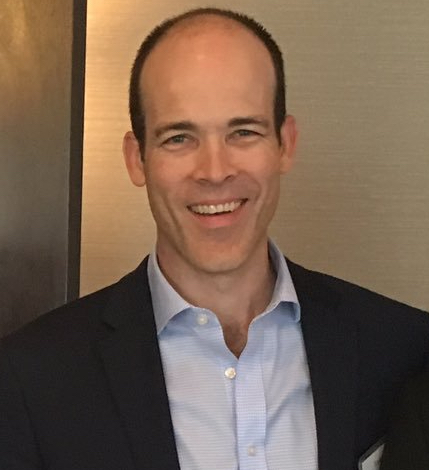World TB Day 2019: It’s Time!
By: J. Lucian (Luke) Davis, MD
March 24, 2019
March 24 is World TB Day, observed on the anniversary of Robert Koch’s original report of his discovery of the Mycobacterium tuberculosis bacillus. The history of the American College of Chest Physicians® (CHEST) is intimately linked with TB. In 1935, Murray Kornfeld who was recovering from TB, envisioned a society and journal to educate others about lung diseases. Today World TB Day provides TB survivors, advocates, clinicians, and scientists a chance to educate the world about this devastating disease and motivate progress toward the objective of ending TB as a public health crisis by 2035. This year’s tagline, “It’s Time,” reminds us that we have not done enough to achieve this goal.

According to the World Health Organization (WHO), TB is the world’s leading cause of infectious mortality, responsible for 1.6 million annual deaths. Greater than 10 million people worldwide develop active tuberculosis each year, including one million children, but one third go undiagnosed. A half million people have drug-resistant TB. Very few of those eligible receive TB preventive therapy. Previous pulmonary TB is now recognized as an important cause of chronic lung disease, including COPD and bronchiectasis, but goes largely unmentioned in clinical practice guidelines  . In 2019, “It’s Time” for better prevention, diagnosis, and treatment of TB, along with better care of post-TB lung disease.
. In 2019, “It’s Time” for better prevention, diagnosis, and treatment of TB, along with better care of post-TB lung disease.
Given the broad global impact of TB, the United Nations (UN) General Assembly held its first-ever High-Level Meeting in 2018 to address the global TB crisis. A critical insight from other global public health eradication efforts is that political commitment and accountability  are essential for real progress. In 2019, “It’s Time” for the world’s political leaders to follow through on policy and financial commitments
are essential for real progress. In 2019, “It’s Time” for the world’s political leaders to follow through on policy and financial commitments  made at the UN, to end suffering and realize the economic and social benefits of these investments.
made at the UN, to end suffering and realize the economic and social benefits of these investments.
Research is a pillar of WHO’s End TB Strategy. In 2018, promising data emerged from the Phase 2 trials of vaccines to prevent TB infection and progression to active TB. We learned that four months of rifampin is effective and well-tolerated for treating latent TB. The US Centers for Disease Control (CDC)  and WHO each issued statements expanding options and indications for latent TB treatment. We received reports of a next-generation molecular diagnostic for active TB
and WHO each issued statements expanding options and indications for latent TB treatment. We received reports of a next-generation molecular diagnostic for active TB  that rivals the sensitivity of mycobacterial culture and read the first trial showing household contact investigation effectively finds and treats those with undiagnosed TB who would have otherwise been lost. We learned that modest nonadherence to or underdosing of standard rifampin regimens greatly increases relapse, while those without HIV, high-burden disease, or lung destruction can likely be cured with 4-month regimens. Finally, a meta-analysis of >12,000 patients in 25 countries shows multi-drug resistant (MDR)-TB outcomes are better when newer, high-potency, low-toxicity oral agents are used. Unfortunately, publications about real-world implementation and quality remain rare. In 2019, “It’s Time” for more research to inform implementation and quality assurance.
that rivals the sensitivity of mycobacterial culture and read the first trial showing household contact investigation effectively finds and treats those with undiagnosed TB who would have otherwise been lost. We learned that modest nonadherence to or underdosing of standard rifampin regimens greatly increases relapse, while those without HIV, high-burden disease, or lung destruction can likely be cured with 4-month regimens. Finally, a meta-analysis of >12,000 patients in 25 countries shows multi-drug resistant (MDR)-TB outcomes are better when newer, high-potency, low-toxicity oral agents are used. Unfortunately, publications about real-world implementation and quality remain rare. In 2019, “It’s Time” for more research to inform implementation and quality assurance.
Finally, no World TB Day blog would be complete without considering the patient experience. Although TB care is usually free in public-sector facilities, patients commonly realize catastrophic costs (≥20% of income) in accessing care. Stigma is another ubiquitous and understudied consequence of seeking TB care. In 2019, “It’s Time” to develop evidence-informed and human-rights based approaches to addressing these adverse effects.
In conclusion, in 2019, “It’s Time” for everyone to play a part to End TB—see what you can do!
 Dr. Luke Davis is an epidemiologist at the Yale School of Public Health and practices pulmonary and critical care medicine at the Yale School of Medicine. His clinical and research interests lie in the area of improving the quality of TB diagnosis, prevention, and treatment through implementation and dissemination science. He is co-founder of the Uganda TB Implementation Research Consortium.
Dr. Luke Davis is an epidemiologist at the Yale School of Public Health and practices pulmonary and critical care medicine at the Yale School of Medicine. His clinical and research interests lie in the area of improving the quality of TB diagnosis, prevention, and treatment through implementation and dissemination science. He is co-founder of the Uganda TB Implementation Research Consortium.